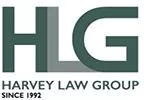- within Immigration topic(s)
- in Europe
- within Family and Matrimonial topic(s)
The recent amendments to the Vietnamese Law on Nationality, effective July 1st, 2025, introduce key changes that significantly ease the path to citizenship for foreign investors, highly skilled professionals, and individuals with family relationships in Vietnam. These reforms reflect the government's strategic initiative to attract international talent and investment, accompanied by a more flexible approach to dual citizenship.
Previously, foreign nationals applying for Vietnamese citizenship were subject to onerous requirements under Article 19 of the Law on Nationality, including language proficiency, a minimum of 5 years of permanent residency and sufficient financial capacity. Exemptions from these requirements applied only if the applicant had a Vietnamese spouse, parent or child; or had made significant contributions; or was deemed beneficial to the country.
In addition, applicants were required to renounce their foreign nationality, a step most were unwilling to take. Applicants seeking to avoid this requirement needed special exemptions approved by the President of Vietnam, which were subject to several additional cumulative conditions, including making significant contributions benefitting Vietnam, and not violating dual citizenship restrictions imposed by their home country, among other requirements.
Applicants were also required to adopt a Vietnamese name and submit their application directly to the local Department of Justice where they resided.
As a result, few foreign citizens showed interest in pursuing the lengthy path to Vietnamese citizenship. It was so uncommon that meeting a naturalized foreigner in Vietnam was — and remains — a rarity, as most foreigners quickly became fatigued by the burdensome requirements. Nevertheless, the desire among many foreigners living in Vietnam to naturalize remains strong, and with the recent amendments, a new groundswell of interest is beginning to emerge.
Under the amendments, foreign nationals with a Vietnamese spouse or biological child can now apply directly for Vietnamese citizenship without having to meet the conditions related to language proficiency, minimum residency or financial capacity, provided they reside in Vietnam and hold a valid permanent residence card at the time of application. Furthermore, those who have a Vietnamese biological parent or grandparent, or who have made significant contributions or are considered beneficial to the country are fully exempt from all these conditions and not required to reside in Vietnam. They may submit their applications to Vietnamese Embassies or Consulates abroad, making the process more simplified and accessible.
Individuals considered beneficial to the country include those with exceptional ability in fields such as science, technology, and innovation, as well as high-skilled professionals or investors actively engaged in business and investment in Vietnam who are recognized for their contribution to national development.
These new applicants are now also permitted to retain dual citizenship — a significant advantage under the amended law. While this remains subject to presidential approval, the conditions have been relaxed. It is now sufficient to demonstrate that dual citizenship is permitted under the law of the applicant's home country without security or public order risks. Additionally, applicants may now adopt a combined Vietnamese and foreign name – a new adjustment that could facilitate smoother interactions in both Vietnam and their home countries.
These amendments signal a more open, strategic, and globally minded direction for the Vietnamese government. The increased flexibility around dual citizenship and the simplified process create a more welcoming environment for foreign investors, global talent, and individuals seeking Vietnamese Citizenship by Ancestry. Notably, Vietnam's standing on the Global Ancestry Index has improved significantly, climbing from 142 to 103, reflecting its stronger global positioning.
The content of this article is intended to provide a general guide to the subject matter. Specialist advice should be sought about your specific circumstances.


